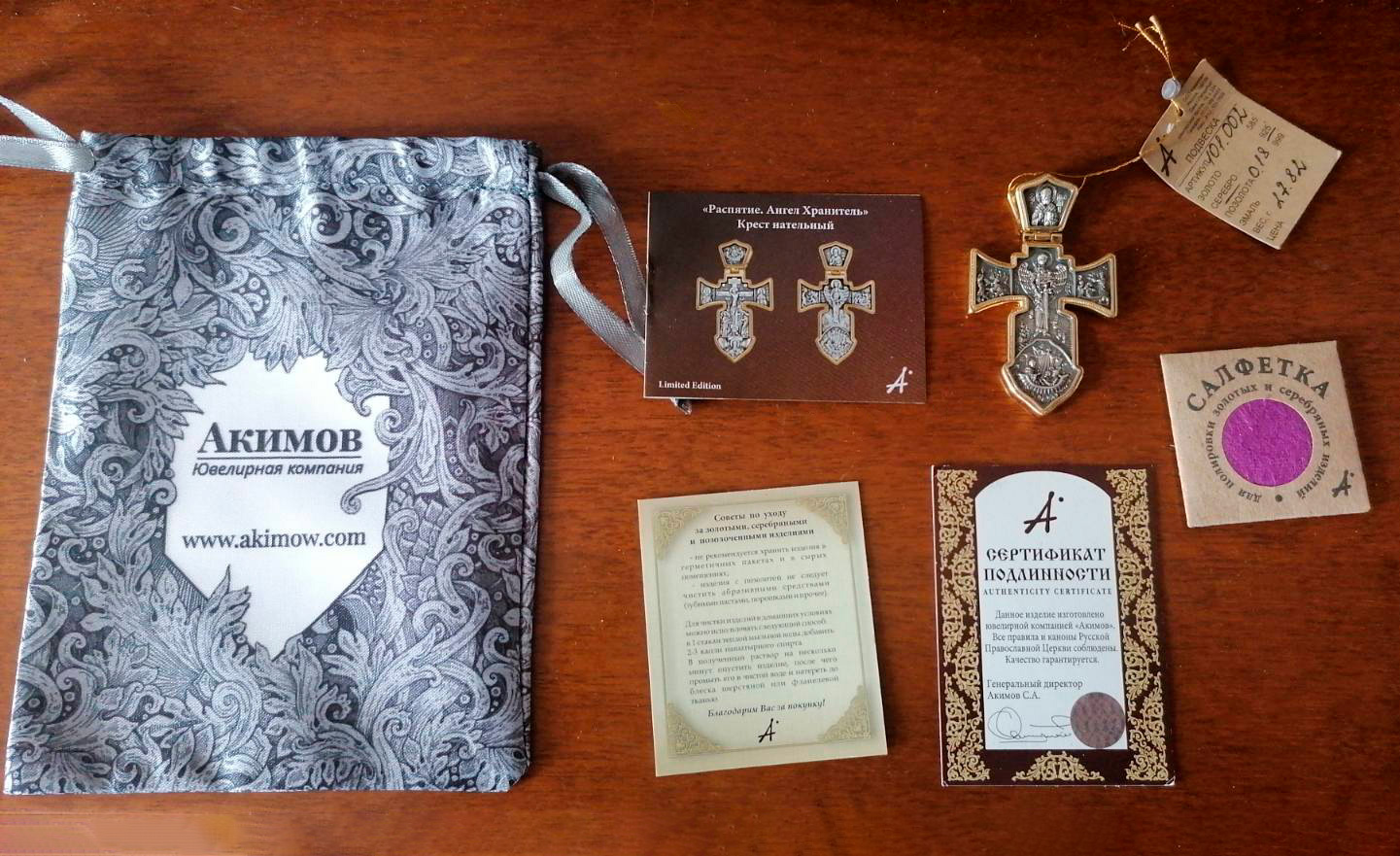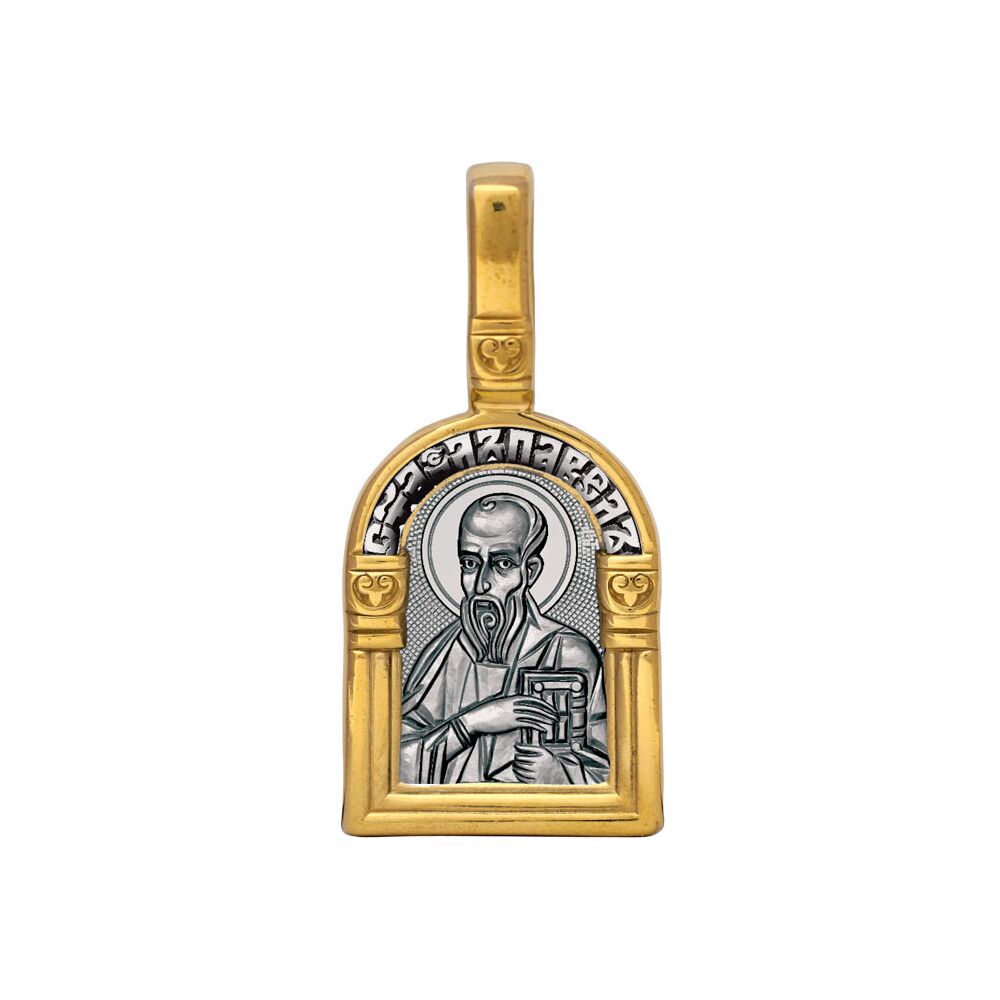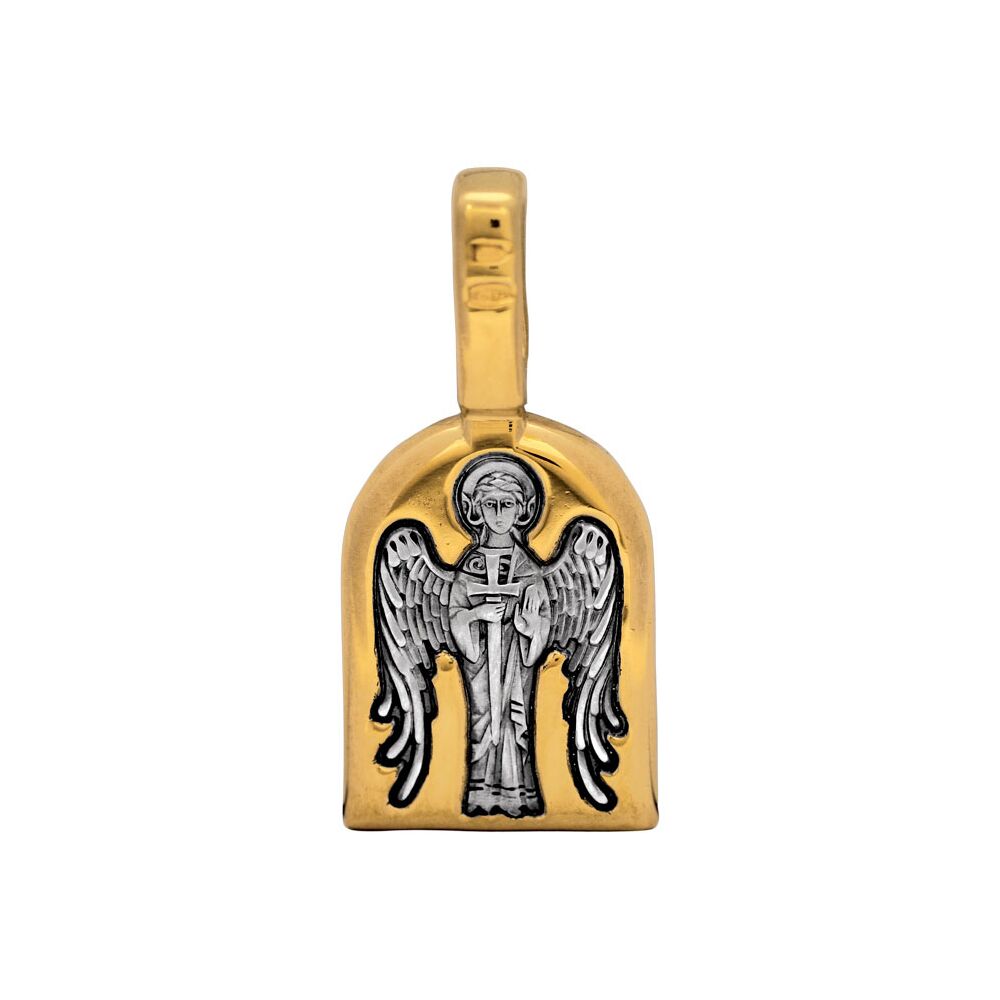Icon Akimov 102.117 «St. Paul, the Apostle. Guardian Angel»

- Product with tag and seal
- Certificate of authenticity with hologram
- Product description book
- Jewelry Care Memo
- Canvas bag with the «Akimov» company logo
12 months warrantyGuarantee for all purchased goods in our online store is 12 months.
Tracking numberYou receive a Track Number to track each step of the delivery of your order.
Return and exchange - no problemYou can return the items purchased within 14 days. The goods must be in normal condition and have all the factory packages.
Different payment methodsPayment cards VISA and MasterCard, Google Pay, Apple Pay, Visa Checkout, Masterpass
Best priceWe are proud of our prices, hundreds of customers check them every day, which give a choice to our online store!
- Silver (925). Gilding (999).
- Miniature relief, casting, gilding, niello, handwork.
"St. Paul, the Apostle was descended from the tribe of Benjamin, and before his apostolic service was named Saul. He was born in Cilician Tarsus to the noble family with rights of Roman citizens. His parents were Jewish, presumably strict Pharisees, and brought up Saul with proper stringency in the laws of their fathers. At the age of fourteen Paul was sent to Jerusalem to train to be a Rabbi. His teacher was a prominent man, a Sanhedrist named Gamaliel. Despite of religious toleration of his teacher who later got baptized (commemorated on August 2), Saul hated Christians. Saul endorsed and was present at the stoning of Archdeacon Stephen (†34; commemorated on December 27) who was related to him, as the story went. Though he did not participate, he encouraged the violent act that destroyed the first of the martyrs, and even guarded the clothes of those who were stoning (Acts 8:3). He then forced people to condemn the Lord Jesus Christ (Acts 26:11). Saul solicited Sanhedrin of permission for general persecution of the believers, both men and women, everywhere and for taking them tied to Jerusalem (Acts 9:1-2).
In 34 году Saul undertook a mission to Damascus, intending to continue attacking Christians who took shelter there. But on the way he was all of a sudden illuminated by Divine Light, and heard a voice: ""Saul! Saul! Why are persecuting me?” Saul asked: ""Who are you, Lord?” The voice replied: “I am Jesus persecuted by you” (Acts 26:13-18). Saul companions heard the voice as well but could not make the words out. Saul after all lost his eyesight of Divine Light shining.
Since that day he stopped eating and spent three days fasting and praying. One of 70 Christ disciples, St. Ananias, the Apostle, lived in Damascus (commemorated on October 1). In a vision the Lord revealed him all happened to Saul and commanded to restore his sight through laying on the hands (Acts 9:10-12). As if scales fell away from Saul`s eyes, and he recovered. He got baptized, and christened Paul.
After the conversion to Christianity Paul began to preach ardently in synagogues of Damascus, that Christ is indeed the Son of God. Hebrews blazed up with hatred to him as to a betrayer, and decided to kill him. However the Christians saved the Apostle: they lowered him in a basket from a window of the house adjoining the city wall.
Having received instructions from The Lord to preach the Christian faith everywhere, Paul, the Apostle started roaming from one country to another sending his Epistles that now are worshipped as the most important doctrinal creations of Church. Altogether the Apostle wrote 14 Epistles. Especially much he preached among heathens. Besides Palestine he evangelized in visited Galatia, Phrygia, Macedonia, Phoenicia, Syria, Cappadocia, Lycaonia, Pamphylia, Carya, Lycia, Mysia, Italy as well as on the isles of Cyprus, Lesbos, Samothrace, Samos, Patmos, Rhodes, Sicily, and many other lands. His word potency was extraordinarily high (Acts 9:22). The Apostle glad tidings spread quickly far and wide, and disarmed the opponents (Acts 13:49; 14:1; 17:4, 12; 18:8). His sermons reached hearts of common, noble, and educated people (Acts 13:12; 17:34; 18:8). In addition he healed the sick persons (Acts 14:10; 16:18) and raised the dead (Acts 20:9-12). Even the things of the Apostle worked wonders: at a touch to them miraculous healings occurred, evil angels left ones possessed (Acts 19:12). For the ardent preaching the Lord honoured His devoted Apostle with being caught up to the third heaven. According to the own according of the Apostle, he ""was caught up into Paradise, and heard unspeakable words, which it is not lawful for a man to utter"" (2 Кор. 12:2-4).
In his incessant labor Paul, the Apostle endured numerous tribulations. In one of his Epistles he professed that had repeatedly been dungeoned and many times – at death's door. He wrote: ""Five times from the Jews I received forty stripes minus one. Three times I was beaten with rods. Once I was stoned. Three times I suffered shipwreck. I have been a night and a day in the deep. I have been in travels often, perils of rivers, perils of robbers, perils from my countrymen, perils from the Gentiles, perils in the city, perils in the wilderness, perils in the sea, perils among false brothers; in labor and travail, in watchings often, in hunger and thirst, in fastings often, and in cold and nakedness"" (2 Кор. 11:24-27).
St. Paul, the Apostle took all his needs and tribulations with great humility (Acts 20:19), since he had been ready to die in the name of Lord anytime (Acts 21:13). Despite of constant persecutions he endured Paul, the Apostle was highly respected by his contemporaries. On seeing his wonders heathens rendered great homage to him (Acts 28:10); inhabitants of Lystra acknowledged him a god for miraculous healing of a lame person (Acts 14:11-18); Hebrews used his name for incantations (Acts 19:13). The believers guarded him with supreme zeal (Acts 9:25, 30; 19:30; 21:12); saying goodbye the Christians kissed him weepingly and prayed for him (Acts 20:37-38); some of Christian Corinthians called themselves the followers of Paul (Corinth 1 1:12).
According to certain legends Paul, the Apostle assisted Peter, the Apostle to overpower Simon the magician and to proselytize two favorite wives of the Emperor Nero for what he was condemned to death. According to other sources, Christianizing of the chief cupbearer was the reason of Paul execution. By several data the death day of Paul, the Apostle concurs with that of Peter, the Apostle; by the other it happened exactly the year after. Being the Rome citizen Paul, the Apostle was decapitated by sword.
Both Paul and Peter are named prime Apls by Church, and are commemorated on July 12 (June 29)."
No posts found





